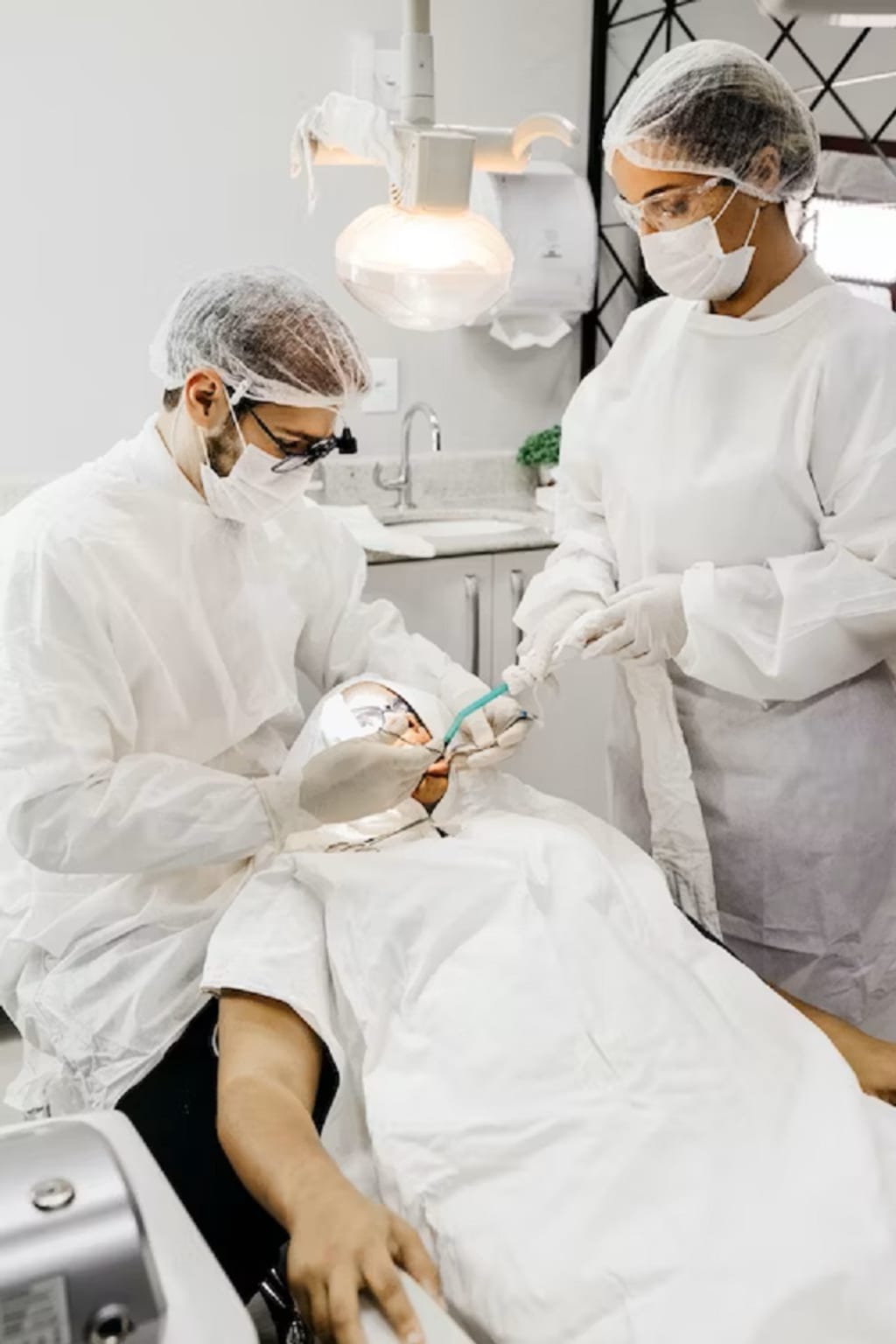Sacrificing Common sense and Lives on the Altar of Commercial Interests!
Poisonous Practices in Dental Treatments and Oral Hygiene

Introduction
In various situations, common sense and even lives are disregarded to serve commercial interests. The field of health is particularly susceptible to this, where unethical practices are driven by the pursuit of financial gain. This article, the first in a series, sheds light on the dental treatment and oral hygiene industry, highlighting the dangerous treatments imposed on patients and the suppression of effective treatments due to their lack of commercial value. While not exhaustive, the information presented here supports the argument that common sense and patient well-being are often sacrificed for profit.
Purposeful Poisoning
One alarming example can be found in dental treatments and oral hygiene practices. Many people are unaware that a widely used dental filling, silver amalgam, is highly toxic. Silver amalgam contains mercury, a substance known for its serious toxicity. Guidelines have been established for the proper disposal of silver amalgam waste, indicating its hazardous nature. Dental offices follow specific protocols for handling and disposing of silver amalgam waste, including:
• Amalgam Separators: Dental offices are equipped with amalgam separators to capture and separate amalgam particles from wastewater, preventing the release of mercury and other metals into the environment. Regular maintenance and replacement of these separators are crucial.
• Chairside Traps: Dental chairs often have traps that collect solid waste, including amalgam remnants. These traps need to be emptied regularly, and the collected material must be disposed of appropriately.
• Recyclable Collection: Leftover amalgam or removed amalgam fillings can be collected separately for recycling. Specialized recycling programs ensure proper treatment and safe recovery or disposal of the mercury.
• Hazardous Waste Disposal: If recycling options are not available, amalgam waste should be treated as hazardous waste and disposed of according to local regulations. Dental offices must adhere to guidelines for proper handling and disposal of hazardous waste.
• Compliance with Regulations: Dental offices must comply with local, state, or national regulations regarding amalgam waste handling and disposal, which may vary.
Despite the well-known dangers of silver amalgam, dentists continue to use it for dental fillings without hesitation.
Oral hygiene practices also raise concerns. Toothpaste, commonly associated with oral hygiene, contains ingredients that may have harmful effects on the body. Here are a few examples:
• Triclosan: Some toothpaste formulations contain triclosan, an antimicrobial agent associated with concerns about antibiotic resistance and disruption of the endocrine system. While its use has been banned in consumer antiseptic washes, it is still allowed in toothpaste at certain concentrations.
• Sodium Lauryl Sulphate (SLS): SLS is a surfactant found in toothpaste that creates foam. Some individuals may experience mouth irritation or sensitivity to SLS, raising concerns about its impact on oral health. However, scientific evidence supporting significant harm caused by SLS in toothpaste is limited.
• Fluoride: Fluoride is a controversial ingredient in toothpaste. While controlled and appropriate use of fluoride in toothpaste is considered safe and effective in preventing tooth decay, excessive ingestion can lead to fluorosis, which discolors and mottles teeth. It is recommended to use fluoride toothpaste in moderation and supervise children to prevent excessive ingestion.
Other Unethical Practices
Here are a few more examples of unethical practices in the dental treatment and oral hygiene industry:
• Unnecessary Procedures: Some dentists may recommend and perform unnecessary procedures to generate more revenue. This can include unnecessary fillings, root canals, or extractions. Patients may undergo these procedures without fully understanding the alternatives or the potential risks involved.
• Overcharging and Insurance Fraud: Dentists may overcharge patients for treatments or services, exploiting their lack of knowledge or understanding. Additionally, some dental professionals may engage in insurance fraud by submitting inflated or false claims to insurance companies, resulting in financial losses for both patients and insurers.
• Misleading Advertising: Dental practices may engage in misleading advertising to attract patients. This can involve false claims about the effectiveness or safety of certain treatments, exaggerated before-and-after images, or testimonials that are not genuine.
• Lack of Informed Consent: Informed consent is a fundamental ethical principle in healthcare. However, some dentists fail to adequately inform patients about the risks, benefits, and alternatives of a particular treatment, leaving patients unaware and unable to make fully informed decisions.
• Unsanitary Conditions: In some cases, dental offices may have unsanitary conditions, such as inadequate sterilization of instruments or improper infection control practices. This puts patients at risk of contracting infections or other health complications.
• Pressure Tactics: Dentists may use high-pressure sales tactics to persuade patients to undergo unnecessary treatments or purchase expensive products. This can include exaggerated claims about the urgency of a particular procedure or creating fear about potential oral health issues.
• Suppression of Alternative Treatments: There have been instances where effective alternative treatments or therapies with fewer side effects have been suppressed or marginalized due to their lack of commercial profitability. This prevents patients from accessing potentially better and safer options.
Conclusion
These examples highlight the importance of critically evaluating dental treatments and oral hygiene practices, prioritizing patient well-being and common sense over commercial interests. It is crucial for individuals to be informed about the potential risks and benefits of the products and treatments they use, making educated decisions based on their own health concerns and values. By advocating for transparency, research, and ethical practices in the health industry, we can work towards a system that genuinely prioritizes patient well-being and upholds the principles of common sense and safety.
About the Creator
Juma Killaghai
Juma Killaghai is a research chemist with over 30 years of experience in the field of research and development. He has a Master’s degree - Organic chemistry, from the University of Dar es Salaam. He resides in Dar es Salaam, Tanzania






Comments
There are no comments for this story
Be the first to respond and start the conversation.